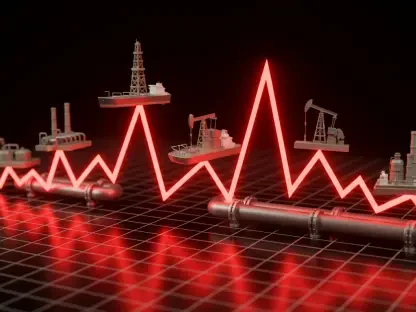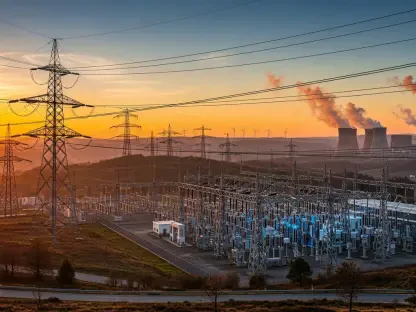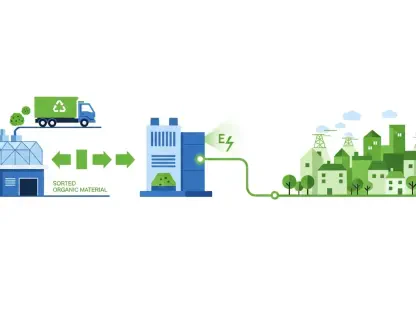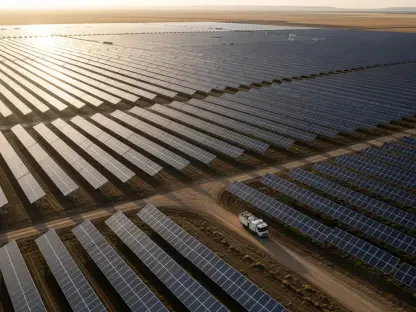As industrial baking processes undergo rapid transformation, the introduction of GEA’s E-Bake G2 electric tunnel oven marks a significant shift towards environmentally sustainable practices. This development reflects the industry’s increasing momentum towards adopting green technologies to minimize its carbon footprint. The E-Bake G2, designed exclusively for electric operation, stands out by delivering a remarkable reduction in energy consumption, cutting usage by an impressive 40% compared to traditional gas-fired systems. The heart of this innovation lies in its architecture, which both optimizes energy use and aligns with global efforts to reduce CO₂ emissions. Key to this shift has been consumer demand, with feedback consistently pointing towards a preference for solutions that prioritize environmental sustainability without sacrificing efficiency or performance.
Precision and Efficiency in Modern Baking
The GEA E-Bake G2’s sophisticated modular architecture provides an unprecedented level of control over the baking process, enabling manufacturers to fine-tune each baking zone to achieve optimal results. This characteristic extends from cookies to crackers, allowing producers to maintain consistent baking quality while adapting to various product requirements. By incorporating advanced airflow and micro-convection technologies, the oven ensures even heat distribution, an essential factor in producing baked goods with uniform texture, color, and moisture. This attention to detail not only enhances the product quality but also maximizes energy efficiency, subsequently reducing operational costs—a significant advantage in today’s energy-conscious market. Moreover, these features contribute decidedly to the industry’s broader push towards sustainable baking techniques that fulfill environmental responsibilities without compromising quality.
Another critical aspect of the E-Bake G2 is its emphasis on minimizing heat loss and maximizing installation efficiency. The oven adopts design elements to reduce thermal bridges, which are notorious for causing energy wastage. Its plug-and-play modular design significantly shortens setup time, a feature that can reduce the typical installation period by up to 70% when compared to older models. Additionally, GEA’s Kinetic Edge machine design optimizes the oven structure by using fewer materials and standardized components. This innovative approach leads to increased flexibility, allowing for easy adaptation to varying production demands. The combination of these technical advances results in a more streamlined, energy-efficient baking process, affirming the oven’s status as a leader in sustainable industrial baking solutions.
Overcoming Challenges for Sustainable Innovation
While the E-Bake G2 offers considerable advantages, challenges such as energy tariffs and infrastructure upgrades remain relevant hurdles to be addressed. The cost of transitioning from gas to electric systems can involve significant upfront expenses, but the long-term operational savings and environmental benefits present a convincing case for this change. Adoption of such technology, therefore, becomes not just a matter of cost but a strategic business decision focused on future-proofing the enterprise against rising energy costs and strict regulatory standards. This shift aligns with the broader trends of the industrial baking sector, which increasingly prioritizes sustainable practices as a core component of its business strategy.
In providing a comprehensive solution that marries environmental stewardship with operational excellence, the E-Bake G2 serves as a compelling case for the electric transition in industrial baking. This progressive approach represents a logical evolution, catering to a market that is not only mindful of ecological impacts but also eager to embrace innovations that promise enhanced efficiency and performance. As firms begin to recognize the tangible benefits of these energy-efficient systems, adoption is expected to grow, reinforcing electric ovens’ role as a cornerstone of sustainable production practices in the baking industry.
Future Prospects for the Baking Industry
The GEA E-Bake G2 boasts a cutting-edge modular design that offers manufacturers exceptional control over the baking process, allowing them to customize each zone for optimal results. This adaptability spans a variety of baked goods, from cookies to crackers, ensuring consistent baking quality while meeting diverse product needs. With sophisticated airflow and micro-convection technologies, the oven delivers even heat distribution, vital for producing goods with uniform texture, color, and moisture content. This precision not only enhances product quality but also boosts energy efficiency, leading to reduced operational expenses—an essential benefit in today’s environmentally conscious market. These attributes support the industry’s shift towards sustainable baking methods that meet eco-friendly standards without sacrificing quality.
Additionally, the E-Bake G2 focuses on minimizing heat loss and improving installation efficiency. Design elements cut down on thermal bridges that cause energy waste. Its modular, plug-and-play setup can trim installation time by 70% compared to older models. With GEA’s Kinetic Edge design, material use is optimized, fostering flexibility for varying production demands, affirming its role as a leader in sustainable industrial baking.









